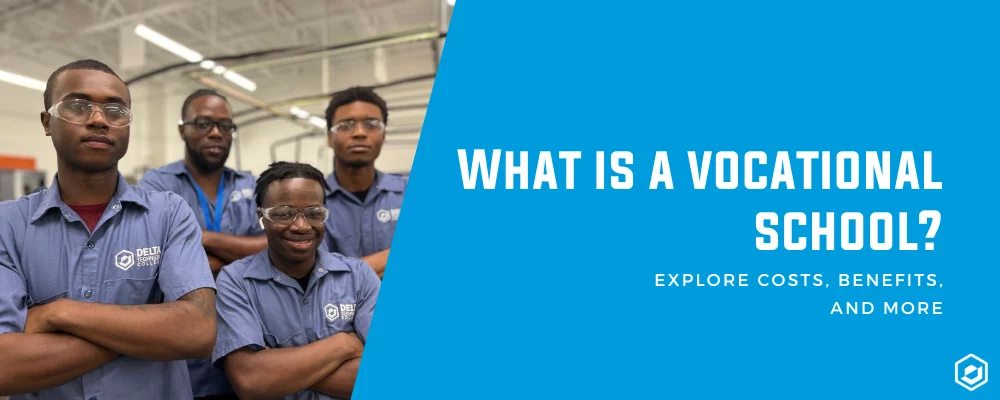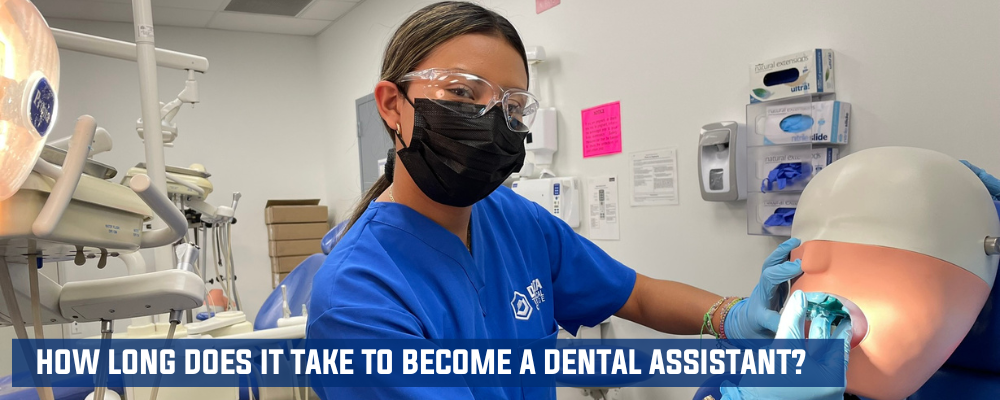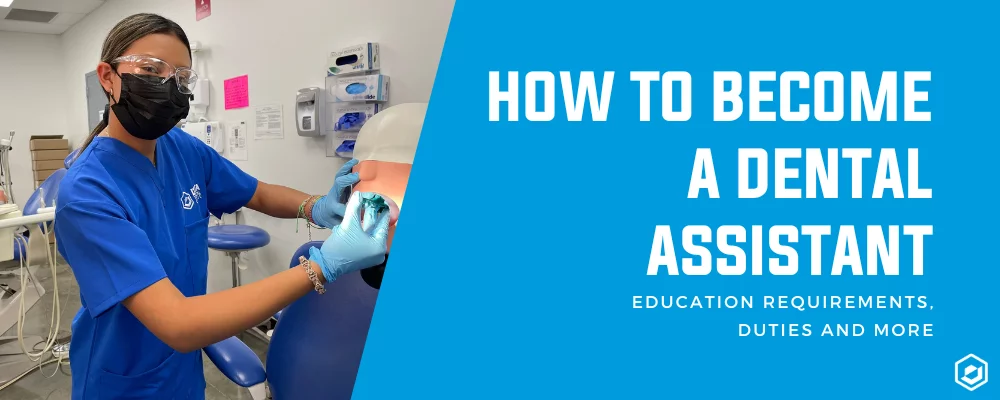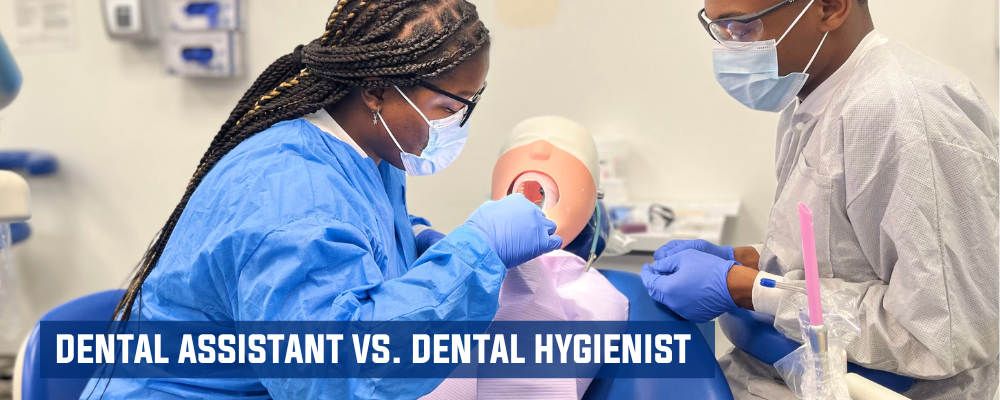For more and more young adults, vocational school programs offer an alternative path to reaching a stable and fulfilling career versus attending a 2-year or 4-year college.
Vocational schools are career-focused postsecondary educational institutions offering job skills training programs that vary in length from several weeks to one year, depending on the type of training.
And with increasing demand for qualified skilled trades professionals in several fields, vocational school is an excellent choice for individuals looking to finish their education and enter the workforce quicker than completing a 2-year or 4-year degree.
What is a vocational school?
In simple terms, a vocational school is a postsecondary school that teaches students the skills necessary to perform the duties of a profession that typically requires a specific set of skills, training, certifications or licensing.
Training programs vary depending on the school, but common offerings include training for students to become welders, HVAC /R technicians, electricians, truck drivers, medical assistants and dental assistants.
Compared to traditional four-year colleges, vocational school programs are shorter and typically more affordable. Unlike four-year colleges, vocational schools emphasize hands-on training in order to prepare students to enter the workforce in less time than a traditional college or university. For example, Delta Technical College (DTC) does not require students to take GE (general education) classes — all classes will be relevant to the program you choose.
| Prerequisites | High school diploma or G.E.D. |
| Popular Trade Programs | Welding, HVAC/R technician, electrician, truck driver |
| Popular Allied Health Programs | Medical assistant, dental assistant, pharmacy technician, medical biller and coder |
| Earned Credentials | Certificate of completion or diploma |
How much does vocational school cost?
The average cost to attend vocational school varies, but it typically ranges between $3,600-$16,000, depending on the type of program and the school you choose.
Remember, that’s not the cost of a single semester, or even an academic year, but rather for the entire program. Some schools, like Delta Technical College, include fees, required tools or supplies, certification test cost (where applicable), and more (depending on the program) in the cost of tuition.
Many vocational school students can complete their entire training for the same price as a single year at many four-year colleges or universities, and start their career faster compared to a 2-year or 4-year program.
Plenty of trade school programs cost even less. For instance, occupations that require just a few weeks of training, such as CDL or phlebotomy, are typically on the lower end of the range mentioned above.
It’s important to note that cost will vary based on the length of your program, the type of vocational school you choose and other factors, such as whether you qualify for financial aid.
The best way to get an idea of your potential costs and what financial aid you may qualify for is to speak directly with an Admissions Representative at the school you’re interested in.
Interested in Learning More About DTC?
Fill out the form below to receive info about our career training programs.
Financial aid for vocational school
If paying cash for your career training isn’t an option, that doesn’t mean you can’t fund your education. In fact, many of the same financial aid options available to university students are also available to vocational school students.
For example, at Delta Technical College, 94% of students received financial aid and 83% received grants from the government, according to IPEDS Data for Delta Technical College – Mississippi.
Let’s take a closer look at your options.
1: Federal financial aid
Vocational school students are eligible for the same types of federal financial aid as traditional college students. DTC is approved by the U.S. Department of Education to participate in federally funded financial aid programs. The first step toward qualifying for financial aid assistance is filling out your Free Application for Federal Student Aid, or FAFSA. The application can be completed online. It’s a bit time consuming but worth the effort. It will help you get approved for educational grants or federally subsidized student loans.
At Delta Technical College, you will meet with a member of the Financial Aid Team who will provide individualized assistance in finding out what financial assistance you may qualify for.
2: Internal and external vocational scholarships
Internal: Many vocational schools offer their own internal scholarships for new students. If you know which school you hope to attend, be sure to check the website for scholarship opportunities that can range from a few thousand dollars to full tuition. Delta Technical College offers an annual High School Scholarship for seniors interested in learning a skilled trade at DTC.
External: There are thousands of scholarship opportunities out there available to vocational school students. Once you’ve taken advantage of internal scholarship opportunities, you can start looking for private/external scholarships. There are plenty of online resources that will help you find the right opportunities for your field of study.
3: Private student loans
If a federally subsidized loan isn’t right for you, private student loans are available through banks, credit unions and other private financial firms.
Can you get a degree from a vocational school?
Most vocational school graduates earn either a diploma or a certificate of completion in a particular field of study, although some vocational schools do offer degree programs. While these are not the same as bachelor’s or advanced degrees, they will prepare graduates to enter the workforce in a specific field and prepare them to take the necessary state-level exams to become certified.
Vocational schools are also a great option for continuing education. For example, a professional welder may want to advance his or her career or improve their skill set by attending a pipefitting continued education course. Delta Technical College also offers a continuing education seminar in Dental Radiology.
What is the difference between technical and vocational schools?
While often used interchangeably, there can be subtle differences between technical and vocational schools. For example, the Department of Education identifies vocational schools as institutions that offer coursework and training in several career areas, including allied health, mechanical trades, skilled trades and business, among others. Many technical schools also teach these fields, but some only offer longer two-year programs, compared to shorter vocational school programs.
What Are the Benefits of Attending Vocational School?
Vocational schools are an alternative to traditional college for people who want to enter their career field sooner. Some people just aren’t interested in spending four years or more training for a new career.
Let’s take a look at some of the key benefits of vocational school.
1: Faster path to a new career
Most vocational programs vary in length from a few weeks to a year. This attracts students looking for career-specific training that can be completed in less time compared to a 2-year or 4-year school. For instance, a bachelor’s degree takes at least four years to complete. The first two years are typically spent studying general education courses unrelated to your major.
On the other hand, if you choose to attend vocational school, you’ll start training for your new career on day one. For example, most programs at DTC prepare you to enter the workforce in less than a year.
2: Flexibility for working adults or parents
Vocational training programs typically offer greater class schedule flexibility than many traditional colleges and universities . For example, at DTC students have the option to take daytime or evening classes for most programs. This is a huge game changer for students with busy schedules who may only be able to study during evening hours.
3: More start dates, year-round class offerings
Vocational schools like Delta Technical College offer classes year-round. With more start dates available, new students don’t have to wait several months to start once they’re accepted into a program.
Popular vocational school programs
What are the most common vocational school programs? There are a handful of career paths students choose based on earning potential, job growth and interest.
Allied Health Programs
Dental Assisting: Delta Technical College’s Dental Assisting Program prepares students for a career assisting dentists by providing patient care and performing other related clinical and administrative duties.
According to the Bureau of Labor Statistics this fast-growing field is expected to grow by 8 percent through 2031, faster than average.
Learn more about how to become a dental assistant.
Medical Assisting: The Medical Assisting Program at Delta Technical College prepares students for entry-level employment as a medical assistant.
This allied health profession is increasing in popularity due to its fast growth. The Bureau of Labor Statistics forecasts employment for medical assistants will grow by 16 percent through 2031.
Medical Coding Specialist: Students who want to work in the medical field, but not directly with patients, may consider becoming a medical coding specialist (also known as a medical biller and coder). The Medical Coding Specialist Program at DTC can be completed in less than a year. This profession is projected to grow 7% through 2031.
Skilled and Mechanical Trade Programs
Welder: Professional welders usually train in a variety of welding techniques, including SMAW, TIG, MIG and FCAW. The Welding Program at DTC focuses on hands-on training to help students develop the skills necessary to find entry-level employment in the welding industry.
Pipefitter: Pipefitters often work alongside welders, but they have a unique set of skills. At DTC, students can learn both welding and pipefitting skills in the Welding & Pipefitting Program.
HVAC/R technician: Becoming a professional HVAC and refrigeration technician requires technical training. DTC’s HVAC/R Technician Program is less than a year and focuses on hands-on training to prepare students to start a career in the HVAC/R industry.
Truck Driver: Training to become a professional truck driver requires preparing for the CDL state licensing test. Truck driver training at DTC includes both classroom and behind-the-wheel training to prepare students to pass a state-level CDL certification exam.
Is vocational school the right choice for you?
If you’re looking for a hands-on education that prepares you to start your career in less time than a 2-year or 4-year college, vocational school might just be the right option for you.
Not only can vocational school be an alternative to traditional college, but it can also prepare you for a rewarding career. You can finish your training in less time while also taking on less student debt compared to 4-year college graduates.
To learn more about Delta Technical College’s vocational school programs, fill out the form below or schedule a tour of your local DTC campus.
SOURCES
- https://nhjournal.com/on-national-skilled-trades-day-americas-labor-shortage-looms/
- https://www.indeed.com/career-advice/career-development/trade-school-cost
- https://www.ed.gov/
- https://www.accreditedschoolsonline.org/resources/trade-school-vs-college/
- https://nces.ed.gov/pubs/web/95024-2.asp
- https://www.bls.gov/ooh/healthcare/dental-assistants.htm
- https://www.bls.gov/ooh/healthcare/medical-assistants.htm
- https://www.bls.gov/ooh/healthcare/medical-records-and-health-information-technicians.htm



